Podcast transcript: Inside CES 2022
Read the full transcript for this episode of the IT Pro Podcast
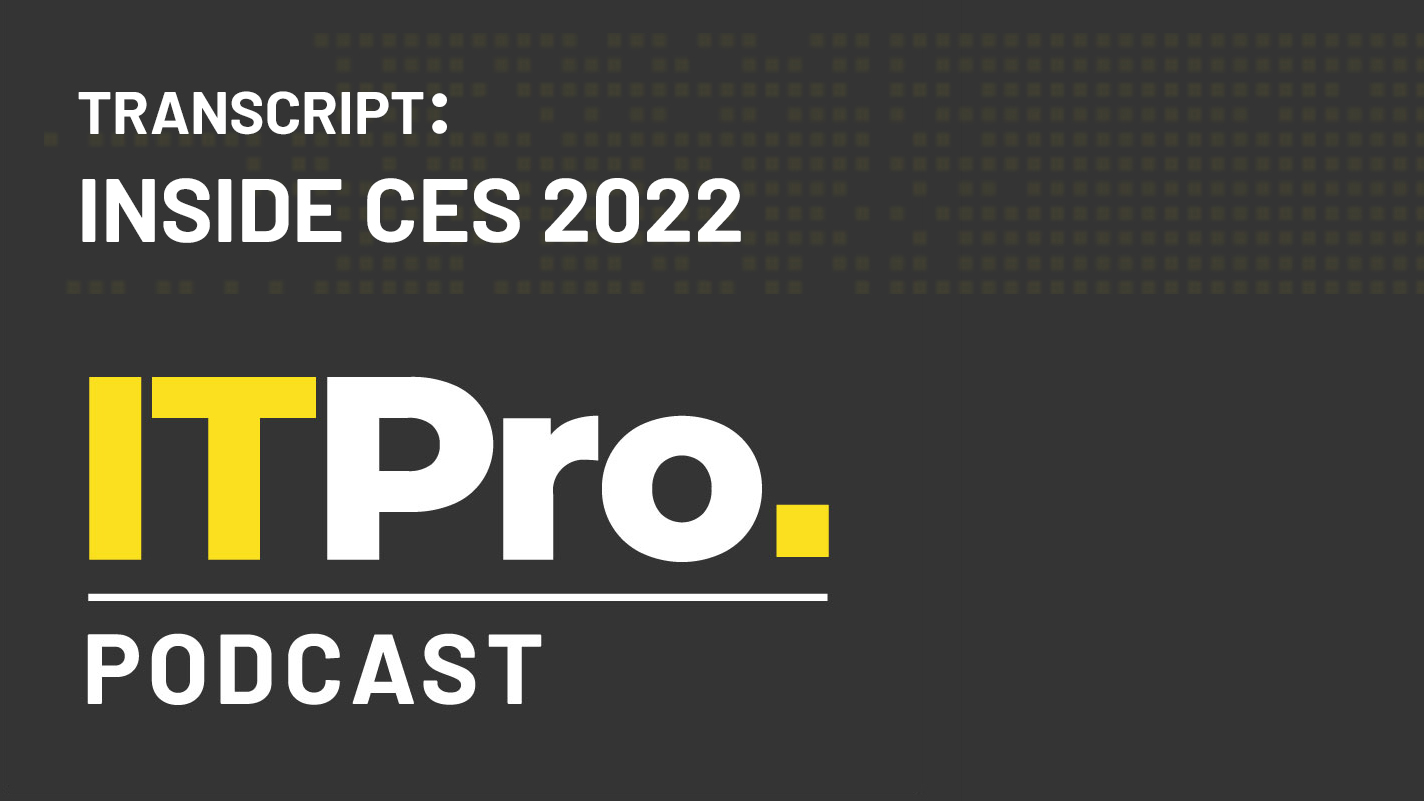
This automatically-generated transcript is taken from the IT Pro Podcast episode ‘Inside CES 2022’. To listen to the full episode, click here. We apologise for any errors.
Bobby Hellard
Hi, I'm Bobby Hellard.
Adam Shepherd
And I'm Adam Shepherd.
Bobby
And on this week's episode of the IT Pro Podcast, we're talking about CES 2022.
Adam
Every January, companies from around the world descend on Las Vegas for one of the biggest events in the tech calendar, the annual Consumer Electronics Show. CES is where many of the year's biggest products are revealed. And although it's technically a consumer event, the products and technologies on show at CES can tell us a lot about the general state of the tech industry.
Bobby
Many of those announcements are also of interest to business IT professionals, particularly those with an eye on the future hardware upgrades. Tim Danton, editor in chief of our sister title PC Pro, and the co-host of the PC Pro Podcast, was on the ground in Las Vegas this year, and joins us this week to tell us about the biggest movers and shakers of CES 2022. Hello, Tim. Thanks for joining us.
Tim Danton
Hi, Bobby. Hi, Adam. Nice to be here.
Get the ITPro daily newsletter
Sign up today and you will receive a free copy of our Future Focus 2025 report - the leading guidance on AI, cybersecurity and other IT challenges as per 700+ senior executives
Adam
Nice to have you. So obviously, the last few years of CES have been a little bit different compared to previous times; what was CES like this year?
Tim
So that's actually quite a difficult question to answer because it was entirely different. Normally, CES is like a bustling, mayhem-y mess of people and noise and just madness. So for example, if you want to travel between a couple of show halls, it will take you upwards of an hour by taxi just due to the queues. Now this year, you could just slide into a taxi if you wished. And you would be there in eight minutes door to door. So that just gives you an idea of the difference in scale in terms of the crowds. So from that point of view, it was absolutely delightful. Because you could do so much more in the time. But at the same time, we had a lot of big name absences from the show. Lots of people pulled out; Intel, AMD, Lenovo. And then there were several people, several companies who were there in name, such as LG and Sony, but actually their presence on the show floor was so minimal compared to what it normally is. It was almost, it was, I don't want to say embarrassing because I do think CTA, the organisers of this show, should get kudos for pushing ahead with it. But at the same time, it was a little bit embarrassing because they there's these great swathes of floor that were nominally Sony and LG, but actually just filled with vacuum of space.
Adam
Yeah, I can imagine, kind of trade shows in general are usually a bit of a bunfight in terms of actually getting to see things and in an environment like this, where you've got nothing but space and nothing but freedom. But there's kind of nothing to see to a large extent...
Tim
Well, so I'm concentrating there on the people who didn't make it or just made a nominal appearance. But there were some really big, big shows as well. So for example, we had Samsung were there. And their stand was amazing. It was just a normal stand, packed full of innovation, packed full of really interesting technology, packed full of people as well, you could barely move. So you had to wait 40 minutes to actually just get into the Samsung stand. So that shows you.
Adam
Now that sounds more like it.
Tim
Yeah. The other thing I'd say is actually it's not.... So CES, obviously, the big name companies get all the attention. But an awful lot of the interesting stuff happens in the smaller halls. So there is one called Eureka Park, which you may be familiar with, which is where all the startups go. And, and that was just as busy as normal. In fact, it may even have been a fraction busier than normal. Because it's where all the interesting things were; these little tiny companies with one idea that they were building up into something that could either be sold on to a bigger company, or they could actually make a go of themselves. And that's that that's what CES is really interesting for, that those innovations, that that germ of something that could, what could one day become something huge, most likely won't; most likely disappear into nothingness. But the potential is there.
Bobby
And can you run us through some of the highlights from the show?
Tim
Yes, some of the ideas were built around anti-COVID measures. So there was a company called Serenio, for example, which has created this, it's like a dehumidifier but instead of trying to purify air in that normal way, it it neutralises COVID, but he said they said it's 99.7% effective.
Adam
That seems promising.
Tim
Yeah. And and you just needed a certain number per square foot. But so for example, a typical office, a small office of let's say, 30 people would need maybe two or three of these purifiers, and then that they reckon would get rid of, of the COVID virus within the office and other viruses as well, obviously. So I spoke to another company who had created these, these air filters effectively for monitors. And the idea being that it's almost like a vacuum cleaner for your monitor. So if you think about the the way you typically work, well you're breathing towards your monitor, and it kind of bounces back and around, all the particles scatter. The idea of this thing is that you'd breathe it towards the monitor, as per normal working practice, but the suction would grab the molecules and, and take them into this filter that's actually at the back of the monitor, and cleanse the air. And he reckoned that the filters would last for six months. But the idea isn't just that you can work it around monitors, but you can actually also apply it to, for example, industrial situations that is on aeroplanes, so this chap was saying to me, you know, the, the planes talked about the fact they can recycle the air every eight minutes, which is great, but you're still recycling air, and it still has to pass through to everyone. But if you could somehow build this technology into the into the back of the screens that are in front of people, then you can actually recycle the air every two or three seconds is his argument. So it's a it's quite compelling. And I must admit, that does sound like a nicer plane journey to me than the current one. But anyway, it feels like something that may be for the the distant future rather than the near future. Oh, so let me see if I can think of anything that doesn't involve COVID. I guess though, though, there were a lot of... the thing is that COVID did, was there as an undercurrent throughout the show, inevitably. But there were interesting other technologies. So for example, I spoke to two companies had interesting battery technology. Battery is one of those technologies that seems to be stuck forever. But there was the one company I was speaking to that reckon they had the perfect technology for electric vehicles. Because A) it wasn't flammable, which is, which is certainly something I look for my cars.
Adam
It's generally a plus.
Tim
Although having said that, gasoline has been pretty flammable throughout its lifetime. And we've we've learned to cope with that. But he was saying the current batteries, if they get, if they get whacked, then there is a risk of explosion. And the current apparently the currently the risk is about seven, the industry efforts is to get down to about a risk level of four. And he reckoned that their battery technology was down at one.
Adam
Wow.
Tim
And actually, they just had it on show. And they were just in pouches. It was it was like you'd see ground coffee, these pouches, but they were filled with some sort of graphene based battery technology. And it sounded very impressive. The problem they have is scale. They are speaking to bespoke car manufacturers about putting it in and other kind of very small projects, because they can't scale in the same way. But they're they're buying a factory, they're building it in the same place that Tesla has its factories. And so this could be again, something big. And again, it's high density as well, which is crucial, of course, for cars, as well as for you know, the things we hold in our hands. So, yeah, interesting. There is this is the kind of stuff that happens there. But it's what I mean about it being like a germ of an idea quite frequently, rather than something that you're going to see hitting the you know, the stands, the retailers next year.
Adam
Yeah, CES is always great for these weird, unique kind of moonshot ideas that, as you say, in all likelihood, probably aren't going to pan out, certainly not for this specific company, but are an indication of what people are kind of trying to work towards, which I think is always very, very interesting. And yeah, you mentioned that kind of graphene, graphene based battery technology. That's something that we've seen for a number of years kind of various startups trying to crack and it will be, you know, by all accounts, it will be the next frontier of battery technology, and will kind of usher in a huge kind of laundry list of changes to the the devices that we use kind of in every aspect of our lives, but it just doesn't quite seem to be there yet.
Tim
Yeah, There's a lot of that in the show and health was a quite a big part of the show as well, I spoke to a couple of really interesting companies who were at the show talking about their health innovations. So for example, there is one company is working with LG to build, like a triage system into its, into its smart TVs. So that rather than having a doctor call you or the surgery call you, you can have a conversation with an avatar on your, on your Smart TV. And it will say, Okay, well, what are your symptoms, bla bla, bla, bla, bla, and they reckon they've got a 94% success rate with their technology, which is existing. So the innovation is that they're building it into the TV. And also that people can, after they've had, let's say, an operation, this TV avatar friend can guide them through, you know, what medication they need to take, the exercises they need to do. And again, you know, interesting, I think we can probably agree. And then a also this was with, in partnership with LG, there was a company who, who, basically, were trying to create a SecondLife-like reality inside, inside things like the Oculus Rift, et cetera. But with a health bent rather than anything else. So again, it would be helping you with any particular problem you had and diagnosis et cetera, and treatments. So interesting. And, and I can definitely see those things happening. I think those things are not germs that will just disappear. I think those things - that's the wrong word, isn't it - those things are not ideas that will just fade out of existence, I think they probably will become something.
Adam
There's a lot of companies and products that get shown off at CES that do have staying power. And in a lot of cases, even if the the products themselves aren't necessarily all winners, the ideas behind them are really significant. So what were the biggest kind of trends that you saw on display at the show?
Tim
Yeah, well trends, this is such a difficult one to really pin down. So I did write down three ideas, that kind of are trends. So one is driverless cars. There is a huge amount of investment in terms of R&D time going into driverless cars in all its various forms. It just seems like that, that has a real groundswell behind it.
Adam
This is something we've been seeing at CES for a number of years now, though, does it feel like we're any closer to actually getting driverless cars that are kind of in the mainstream? I mean, you know, Tesla have been rolling out with admittedly mixed success for a number of years, you know, Waymo has been doing their thing for best part of a decade now, I think at this point. Driverless cars, you know, the core technology has been extant for a while, but it's still not something that's kind of accessible for most people yet, I would argue.
Tim
Yes, and no. So it is there, but it's in, sometimes it's in industrial settings. So, for example, there's a lot of automated technology built into agricultural equipment now, which we don't actually see ourselves, but it is there. But I would also say this is one of those technologies that's going to take us by stealth, we're gonna say, oh, yeah, it's never coming. It's never coming. And then, you know, right now, for example, you have automated parking. Now, that's not going to take you from Luton to Liverpool, but it will take you know, take over some of that irritating job of actually once you actually get there. So that's where I think it is coming. But you just have to be aware, you know, of the false expectations and hope people say driverless cars and the picture, what was that name of that robot in Total Recall? Bobby, or something, the one who took Arnie.
Bobby
I can't remember the name of it.
Tim
Yeah. But anyway, we expect that, that's what we kind of want and hope. And no, that's, that isn't quite there.
Adam
So what developments did you see at CES in terms of driverless cars because as as you mentioned, the technology itself has kind of been reasonably mature for a while.
Tim
So Intel, its keynotes dedicated about 20 minutes of the Technical Alpha, its keynote to Mobileye, this Israeli technology company it bought about 5, 10 years ago. But quite frankly, it's it's all, it always just feels very minor and incremental in terms of the technologies. So there's nothing mind-slamming, it's always building more data so that things are just slightly more reliable. But there is starting to be, I can definitely see some industry momentum building up behind it.
Adam
So we've covered some of CES' more, if you like esoteric elements. Let's talk a little bit about some of the meatier aspects of the show in terms of kind of traditional computing, if you like, inverted commas. What was it like for kind of laptops and hardware and things like that, were there any kind of real standouts from the show for you?
Tim
So we had, so all sorry, excuse my sigh. But so that was one of the disappointing elements of the show, is I mentioned at the top for the likes of Intel and AMD and Lenovo, et cetera, pulled out of the show, and they had a kind of virtual presence at best. And that meant that I could not actually get my hands on any hardware. Unlike previous shows, where I would have time with all the new Lenovo laptops or the new Asus laptops, blah, blah, blah. But there were announcements that were interesting. And the possibly the most interesting one was the Asus laptop, it is the Asus Zenbook 17 Fold OLED. And so this is, it's not, this isn't the first foldable laptop we've seen, foldable tablet we've seen. So obviously everyone is aware of the Galaxies, the Samsung Galaxy phones. But before that even, or in between the various announcements, we've had the Lenovo X1 Fold.
Adam
Yes.
Tim
Which was effectively, not not, it's not fair to call it vaporware. I mean, I've I saw it in a case, I saw it being held. I think I may even have held at some point myself, but they never actually let us review it. Which isn't a sign of confidence in a product now.
Adam
It didn't get a mainstream release did it?
Tim
Well, you could buy it, you could have bought it. So I believe you probably still can buy it. About three grand, I believe.
Adam
Yeah, it's it's one of those ones that seems like it's kind of more of a kind of proof of concept than an actual product. And yes, they put it out for, you know, insane early adopters who were willing to spend multiple thousands to get the very first edition of something, but it didn't really seem like a product that they were wanting to push to primetime as it were.
Tim
No, and that's definitely true. And it's also notable that, you know, even the ThinkPad is a niche, if you consider it really, so it was a niche within a niche. So which is never gonna be a big seller. So the Zenbook 17 Fold is the same kind of idea. But whereas the ThinkPad was relatively small, if memory serves, about 13 inches, this is 17.3 inches.
Adam
Good lord.
Tim
So yes, I think so that's like a, it's like a small screen in many ways and they've actually built a kickstand into it so you can use it as a standalone screen if you wish.
Adam
Interesting.
Tim
So it comes obviously with a Bluetooth keyboard that can either you can use as a standalone thing so on your travels, set up a stand, get out a mouse and start using it as a proper PC. Interesting concept. And if you want to use it as a giant tablet, a 17.3 inch tablet - I can't quite quite, can't quite envisage when I'd want to do that but anyway - you can do or you can fold it over into like a laptop format. And then this Bluetooth keyboard I mentioned then clips onto the lower half and it becomes, it takes on the format of a laptop. Or obviously you can move the Bluetooth keyboard away from it and then have two screens in front of you, you know, so a top screen and a bottom screen or you know have it folded sideways or whatever you want to do. And the the other format they see is like a book format. So you go, you go from side to side and as a as a book. So it's 17.4 millimetres when closed. The 17.3 inch screen that I mentioned, which is the main screen, that's 2560 by 1920. So not a huge, not the most high definition of resolutions. But that should be enough actually, to give you a decent viewing experience, I think that should be enough. And when you fold it down into that laptop standard kind of format I talked about, it becomes like a 12.5 inch screen. So two 12.5 inch screens. With a, I think 1920 by 1080. Maybe not quite that. But anyway, I can't think of the resolution off top my head. But it does look interesting. And I'd be very interested to see how I might actually use this in practice. I'm not sure I would. So I'd be interested in what what what do you think, Bobby? Would you use this this strange device?
Bobby
Um, I don't think I would, no. Mostly because it comes in parts and stuff. And I just don't like the hassle. I'm not really sold on folding screens at the moment.
Tim
Probably of more interest, I'd imagine, to IT professionals who are listening to this thinking what might they possibly buy from the show? There were a couple of interesting new products that they might like. So the Dell XPS 13 Plus, I don't know whether that caught either of your eye?
Adam
Yes.
Tim
It caught your eye Adam.
Adam
It very much caught my eye. Yes. It's it's looking really, really interesting. Particularly. I mean, the the Dell XPS 13 is always a kind of benchmark of the the state of Windows laptops in general; it's usually round about the top of the pile. But what's particularly interesting is the the touch bar, that's definitely not a touch bar.
Tim
Well, the potentially pointless touch bar is the unfortunate question over it, I think. The other thing about the XPS 13 Plus, which is questionable, is the fact that it's got no visible touchpad. So they built it into the base, the touch, well, the area underneath the keyboard that has no name. That's what they built it into. So it just looks like a stretch of metal. And you almost have to guess where the touchpad is. Which could work but just screams form over function to me.
Adam
Yeah, that's, I hadn't actually noticed that. That's really interesting. I think that's a design choice that I would absolutely hate.
Tim
There is one laptop then that might interest you, Adam. It's not that it's got a touch bar. But it does have a second screen built into the laptop. So this is the Lenovo ThinkBook Plus Gen 3. Now, Lenovo hasn't really made a big play of the ThinkBook brand in the UK, particularly, but it tends to use it for smaller businesses, and to experiment a bit with the form factor. So on this occasion it has, it's embedded an eight inch panel, a secondary eight inch panel into the base of the laptop, which I realised sounds very weird. So obviously, to make space for it, they needed a big first panel. So it's a 17.3 inch laptop, then just imagine the keyboard being shunted off to the left and squeezed down a bit like a ultra portable sized keyboard. And they filled the whole of the remaining space on the right with this eight inch panel. So which can act as a secondary display or, obviously they've got software that they've they've created to help you to do specific apps onto it as well. Or you can write on it. So there's an integrated digital pen. So you could sign documents, you could doodle, you could do whatever the heck you like, Adam, with it. But they say it could be good for creatives. So you could have your main, you'd be working on a presentation or a artistic document of some description, and then use the secondary panel to actually do the fine control, the editing, the tweaks.
Adam
This is bizarre.
Bobby
The thing with with that is the key, the physical keyboard bit would be... You've only got to use one hand to use it. So is it on the right of the keyboard?
Tim
The panel is on the right of the keyboard.
Bobby
So you'd... just one hand.
Tim
Oh no, but but you still, so it's an ultra portable sized keyboard. So it's still a full size keyboard.
Adam
it's the kind of keyboard you'd get, say on a 13 inch device, I would imagine.
Tim
Exactly. Yeah, maybe 12 inch, but yeah.
Adam
You'd still have to have the the keyboard, you'd have your hands off to one side, or you'd have the screen off to one side, like, I, I can't see that being a comfortable experience to use. And it kind of it seems especially bizarre compared to Lenovo's previous ThinkBook Plus, which had an e-ink display built into the lid, which was, to my mind, certainly, a much more kind of useful implementation of that kind of design. So you could shut the laptop and you know, take notes and kind of do various other things with a much more kind of power efficient e-ink display, and then open it up when you wanted to use the laptop as a laptop.
Tim
Yeah, but you'll notice that that has been discontinued and, or at least, you know, long, no longer promoted. So I guess they didn't really take off. I think this is actually a more useful kind of squeezing of the technologies in just because e-ink displays are, as we know, so limited in what they can do. At least this one is closer to having like a graphics tablet built into your your main screen, and you can still then use the main screen whilst you're fiddling with a digital pad. I, the thing that puts me off is it's so big; 17.3 inch laptop. I don't have the weight to hand, but I imagine it's around somewhere between 2.5 and 3 kilos.
Adam
I don't imagine so. Yeah.
Tim
It's gonna you know, it's the return of the luggable, isn't it, with that, with that kind of thing? Oh, can I go the other way though? Just with my final pick of the products. Yeah, the HP Elite Dragonfly G3.
Adam
Yes.
Tim
Ooh, I do like a Dragonfly. For people who are not familiar with this delightful form factor. It is a sub one kilogramme business laptop made by HP, great, first sold in 2019. And it is gorgeous. It's always been gorgeous, will always be gorgeous, and just looks so stylish just due to its sheer slenderness and tininess. And it's been updated for 2022 with obviously, the latest generation of Intel silicon. So the 12th generation Intel Core chips.
Adam
Intel announced, as we discussed on last week's podcast, Intel has launched a bunch of new silicon at the show, so it didn't take the wraps off the 12th Gen entirely. There were some 12th Gen items knocking around before but they launched a bunch of new mobile and desktop chips. And this will be one of them.
Tim
Yep, that's right. And so with this new gen, 12th gen intel Core, comes an upgraded webcam. Hurray. This is one of the big things we really want to see in 2022; better webcams. I've just finished writing a group test of laptops of PC Pro. That will be out in February 2022. Thanks for asking. And the webcams in all of the 15 laptops I tested were all, at the best they were okay. Most of them were just really actually pretty poor. I just find that incredible. But anyway, they are saying it's an upgraded webcam, and there's AI to boost voice clarity, along with four amps to make actually the sound you hear from the speakers, it should sound like, it should be a nice sounding laptop, basically. I was really looking forward to actually getting my hands on it and testing it because that is a superb looking laptop.
Adam
And then finally, what about AI? I seem to recall voice assistants and AI technology in general as something that CES always kind of has in the background floating around. But how much of a presence was it this year?
Tim
AI is everywhere. I so I would almost say that about half of the people I spoke to had AI involved in their product somewhere. So it's no longer like a separate category. It's just something that underpins a lot of the new innovations.
Adam
It's in everything.
Tim
And the other thing that's kind of linked to that is you could... There's a lot of cynicism about the metaverse and again, quite rightly so. But you can start to see the little building blocks of the metaverse happen. We don't know what the metaverse is gonna be. Again, we don't know if it's just a piece of hype. But there are quite a few things happening in the show that could one day become the little building blocks of of of what the metaverse could be. So there was a company called I3M and they had created this, this app that gave you a very realistic travel experience. And so a lot of what the metaverse will be is a digital twin, which is obviously an idea we're all very familiar with. But like an advanced version of that, like a hyper real version of what a digital twin is. So if you can have a digital twin of, of tourism areas, then you can you maybe use that as your travel experience, but maybe you use it to work out where you do or don't want to go. So that's one thing, but also there were enterprise training tools that were using it. So again, this is the concept of digital twins. This is a company called iQ3, that were making these enterprise training tools that would allow people to look at something. And then because they knew what the physical object was, they can overlay an image of that onto the onto the glasses, whatever it may be that people are using. And again, this isn't completely new, because we've seen such technologies before. Epson has a headset out in place already. That allows you to do a similar thing. But it's all, it's higher resolution and it's more realistic. So it I do think it could happen. I don't think it is just complete nonsense. And I, my mind shifted during the course of the show from being a bit of a metaverse cynic into thinking actually, there could be something there.
Adam
Ahh, Tim, you've drunk the Kool Aid.
Bobby
Do you think part of the problem with the metaverse is the main company leading the charge is Facebook?
Adam
I don't think it helps.
Tim
Possibly. The Yeah, yes. It comes with many benefits, doesn't it? Having someone like Facebook or Meta behind you. But as you're right, it does kind of breed cynicism as well. But the feeling that I got from the show, and obviously these are people who are invested in it, is that that they see it as a good thing to have to have the likes of Mark Zuckerberg really hyping it up. One thing I'm not quite sure that is useful is you know, where he had that presentation where he showed himself floating around on that spaceship, et cetera. I don't really think that's... maybe that's going to be one little corner of the metaverse. But I don't think it's really how the metaverse will end up being. I think the metaverse is going to be more subtle than that.
Bobby
What was the most significant part of the show for you, Tim?
Tim
So the biggest - I'm gonna use an Americanism - the biggest takeaway for me, was that actually, innovation is is rampant out there. And the idea that innovation has slowed down, or anything like that is completely incorrect. There's so much interesting new stuff coming out. A lot of it not from the big companies, a lot of it from the smaller companies. I think that's... put away any citizen cynicism you may have that things are slowing down. They are not. There are a lot of new ideas coming out. We should listen to them, look to them because the next Zoom, et cetera, they're gonna be here in the show somewhere, or, if not this show, the next show. And it's just, it's fascinating to be there. And among all these bright minds, and I actually loved being at CES this year, despite the lack of big names.
Adam
Well, Tim, thank you very much for braving the jetlag to take us through some of the highlights from this year's show. Unfortunately, that's all from us for this week. But our thanks once again to PC Pro's Tim Danton for joining.
Tim
It's my absolute pleasure, Adam and Bobby, thank you for having me.
Bobby
You can find links to all the topics we've spoken about today in the show's notes and even more on our website, www.itpro.com.
Adam
You can also follow us on social media and if you like leave us a rating and a review. We'll be back next week with more analysis from the world of IT. But until then, goodbye.
Bobby
Goodbye.
ITPro is a global business technology website providing the latest news, analysis, and business insight for IT decision-makers. Whether it's cyber security, cloud computing, IT infrastructure, or business strategy, we aim to equip leaders with the data they need to make informed IT investments.
For regular updates delivered to your inbox and social feeds, be sure to sign up to our daily newsletter and follow on us LinkedIn and Twitter.
-
 Should AI PCs be part of your next hardware refresh?
Should AI PCs be part of your next hardware refresh?AI PCs are fast becoming a business staple and a surefire way to future-proof your business
By Bobby Hellard
-
 Westcon-Comstor and Vectra AI launch brace of new channel initiatives
Westcon-Comstor and Vectra AI launch brace of new channel initiativesNews Westcon-Comstor and Vectra AI have announced the launch of two new channel growth initiatives focused on the managed security service provider (MSSP) space and AWS Marketplace.
By Daniel Todd
-
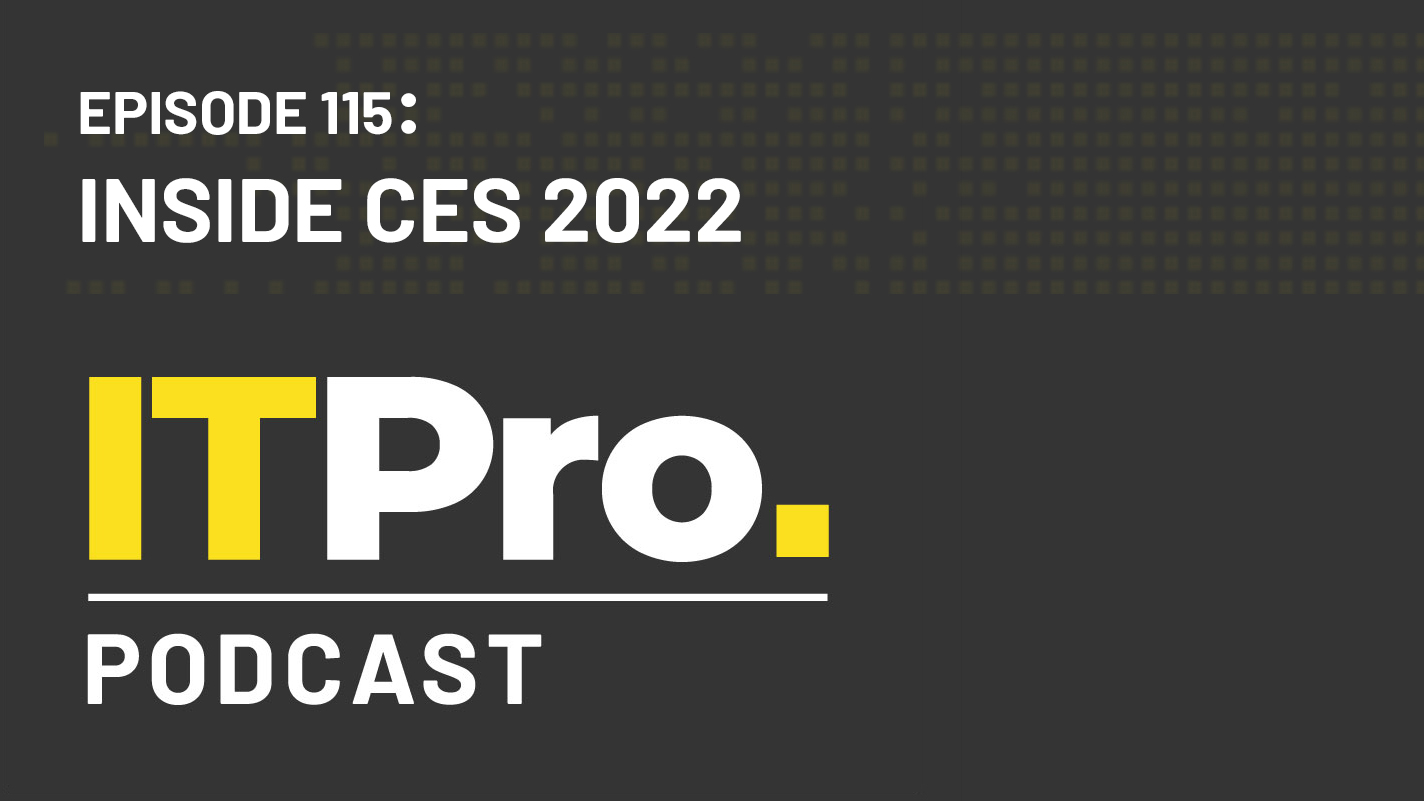 The IT Pro Podcast: Inside CES 2022
The IT Pro Podcast: Inside CES 2022IT Pro Podcast We bring you a look at some of the most interesting tech from this year’s show
By IT Pro
-
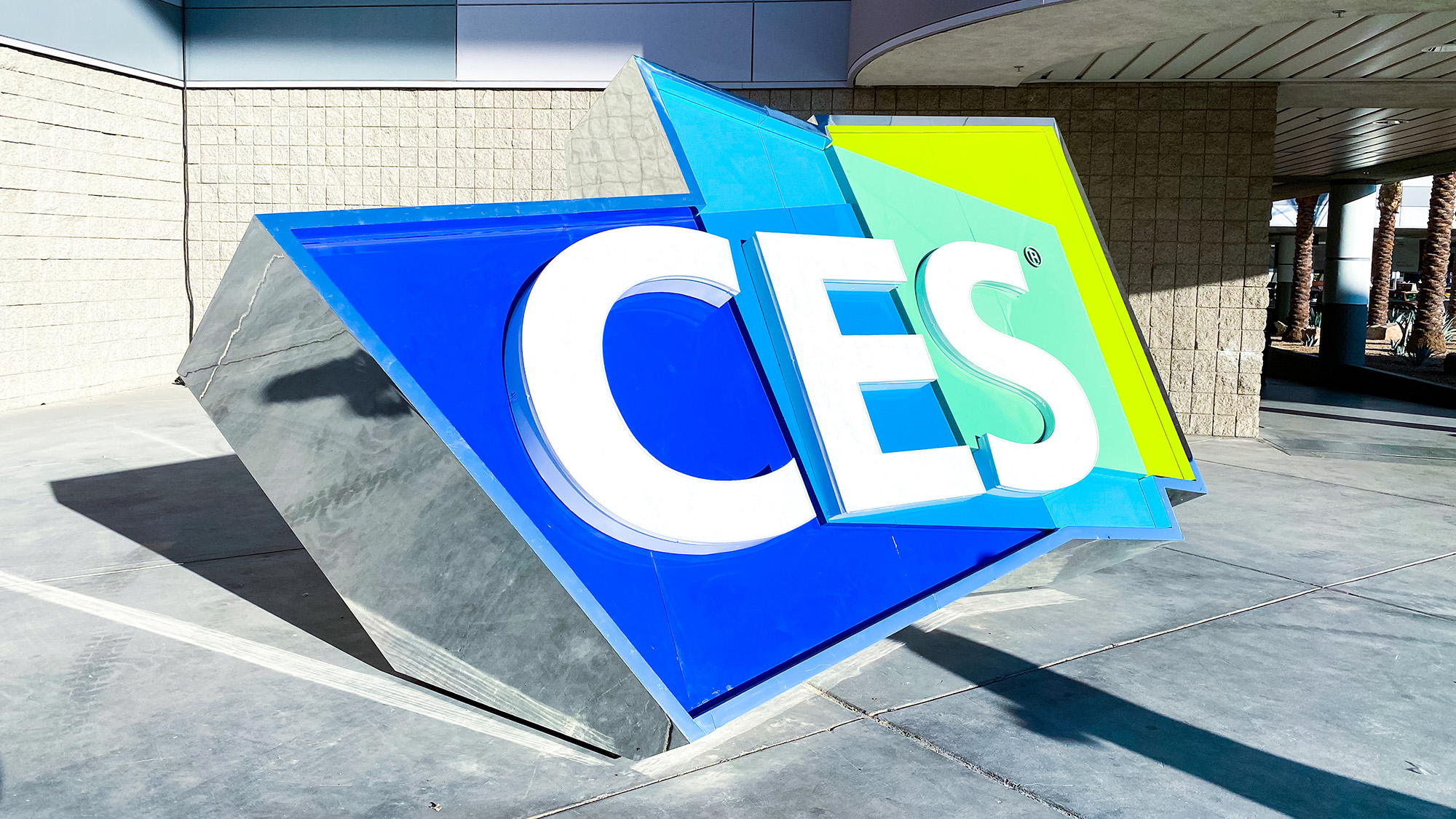 The most interesting tech of CES 2021
The most interesting tech of CES 2021In-depth While this year’s expo was much smaller than usual, there was still some interesting tech – and major announcements – on offer
By Carly Page
-
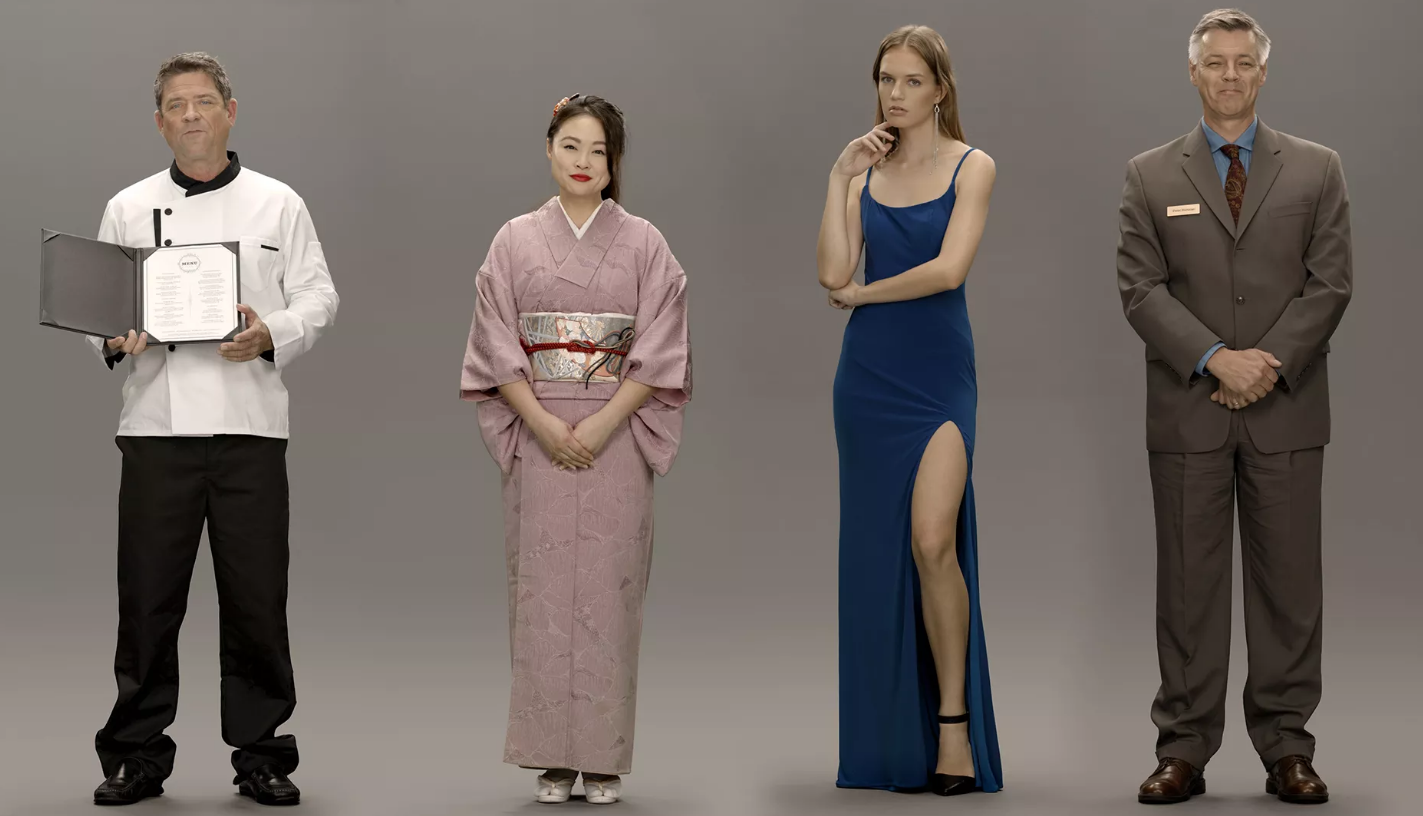 What is a Neon artificial human?
What is a Neon artificial human?In-depth Samsung’s Star Labs has unveiled a few details about its Neon artificial humans, but this isn’t Blade Runner
By Rory Bathgate
-
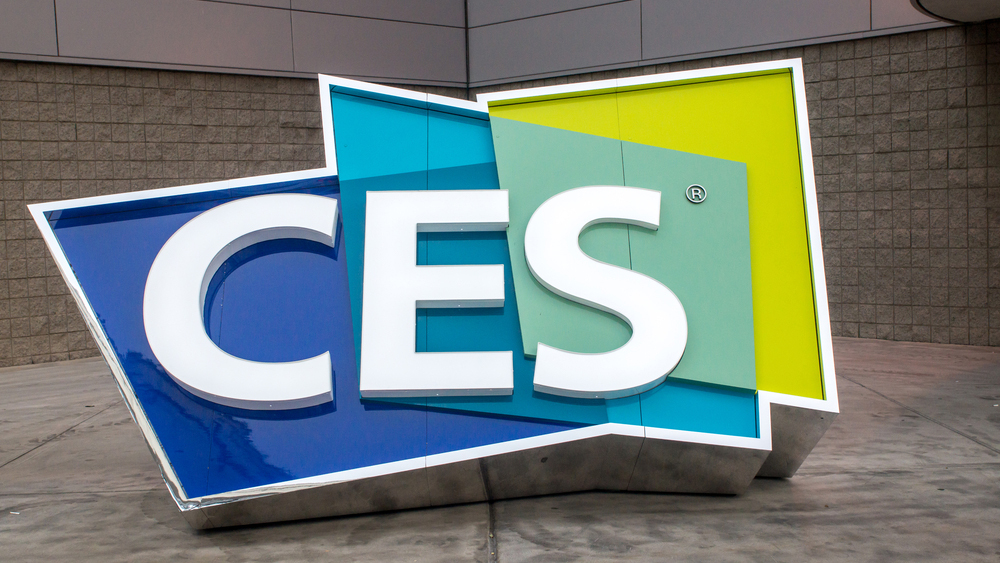 CES 2019: All the biggest announcements
CES 2019: All the biggest announcementsNews The most important news from the year's largest tech event
By Adam Shepherd
-
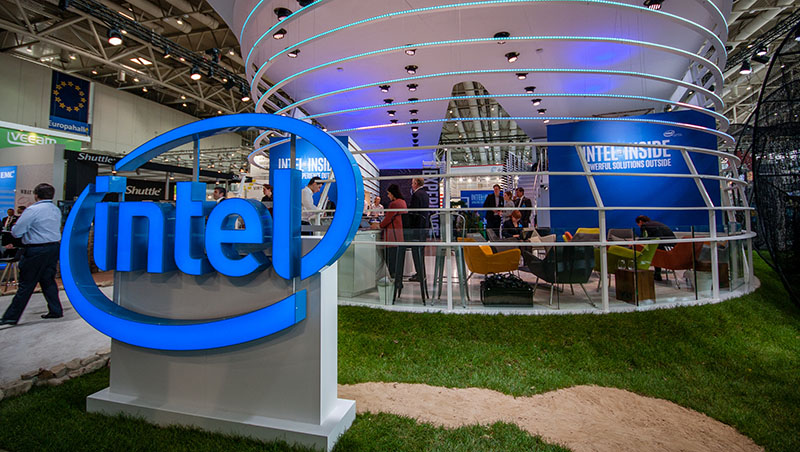 Intel has hit a “major breakthrough” in quantum computing
Intel has hit a “major breakthrough” in quantum computingNews The CES 2018 keynote covered quantum computers, self-driving cars and a self-learning AI chip
By Alan Martin
